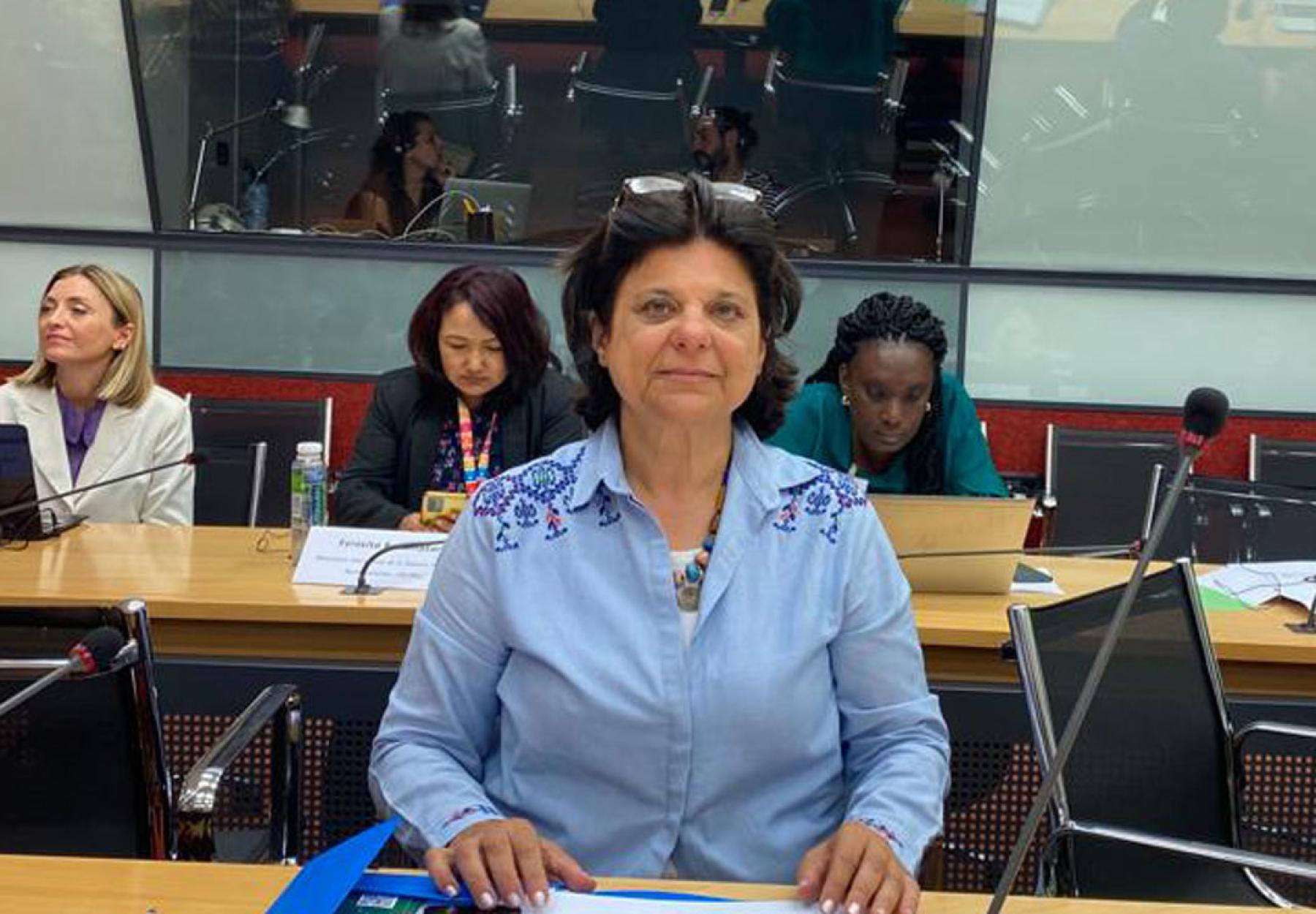
APN | Rome
6-7 June 2023
The Food and Agriculture Organization of the United Nations (FAO) invited Razan Zuayter, APN Chairperson of the Board, to participate in a two-day dialogue held in Rome. The dialogue involved civil society organizations from across the world and aimed to explore ways to strengthen FAO-CSO engagement, fostering improved effectiveness in both local and regional contexts, and amplifying CSO representation in global forums. The Director-General of FAO, Qu Dongyu, was also present during the dialogue.
Zuayter commended FAO for organizing the dialogue, which has the potential to bridge the gap between civil society organizations, particularly in the Global South, and FAO itself. The objective is to establish and activate partnership mechanisms that amplify the voices of marginalized communities across various countries, including the Arab region, the Philippines, Pakistan, West Asia, Uganda, and others, by engaging with grassroots organizations at national and regional levels. Currently, engagement is limited to a select few civil society organizations chosen from the Global North who prioritize their own interests and agendas, which may not align with the diverse priorities, interests, and aspirations of all actors in an equitable and fair manner.
Zuayter attributed this disparity to the policies and practices of the International Planning Committee for Food Sovereignty (IPC) Secretariat. The Secretariat monopolizes the mediation between FAO and civil society, lacking clear and equitable selection criteria that would guarantee inclusivity and diverse representation.
It is important to highlight that that the IPC extended the invitation to APN for FAO's dialogue in Rome based on the explicit insistence of FAO. Unfortunately, the Secretariat declined to invite several organizations despite their expressed willingness to cover their own travel and accommodation expenses. In response to Zuayter's call for inclusivity, the sessions were made accessible to all through virtual attendance, albeit with the limitation that participation was restricted to view/listen only. Zuayter regarded this as a positive step towards fulfilling FAO's objective of expanding participation and attendance in its forums, sessions, and other activities.


